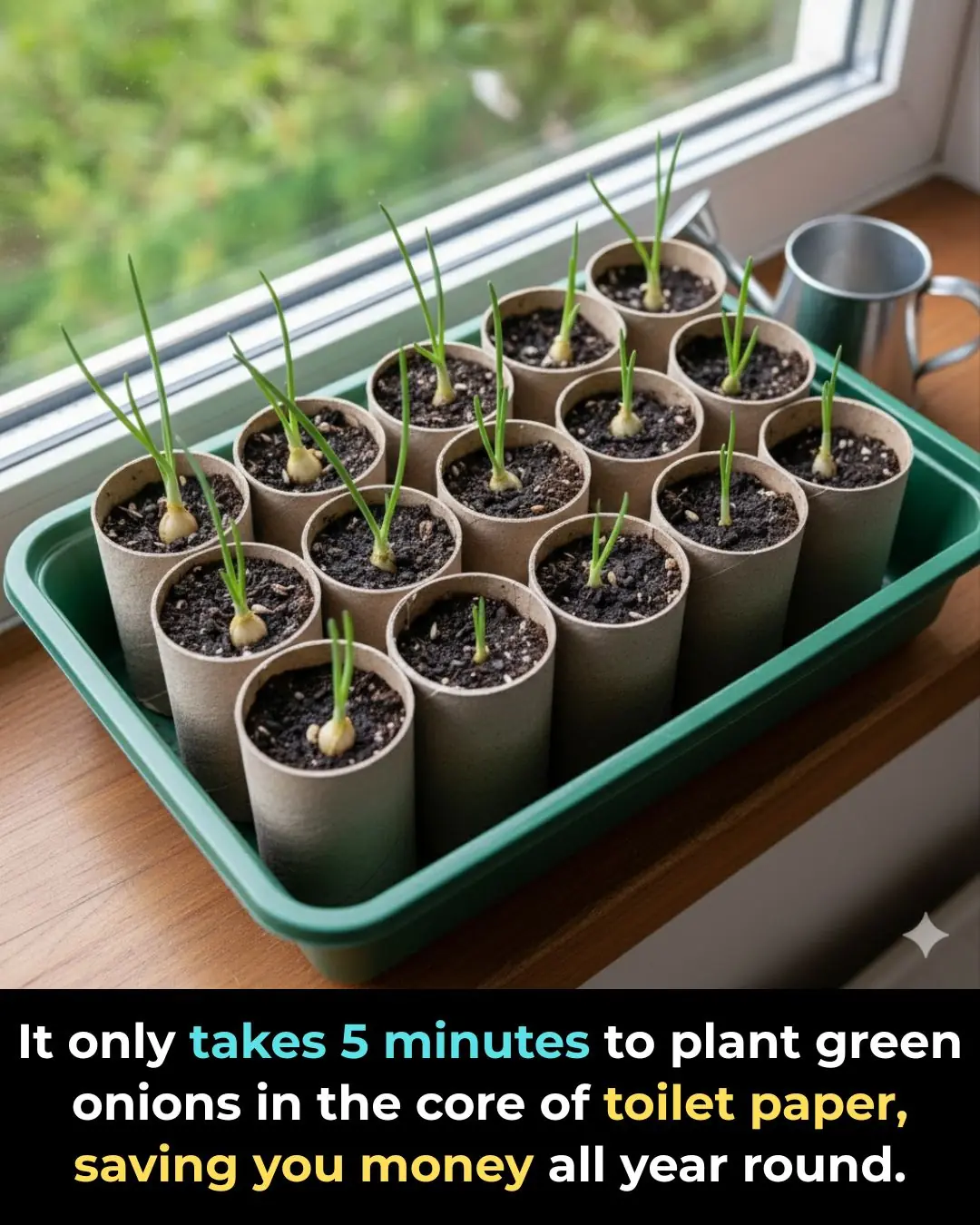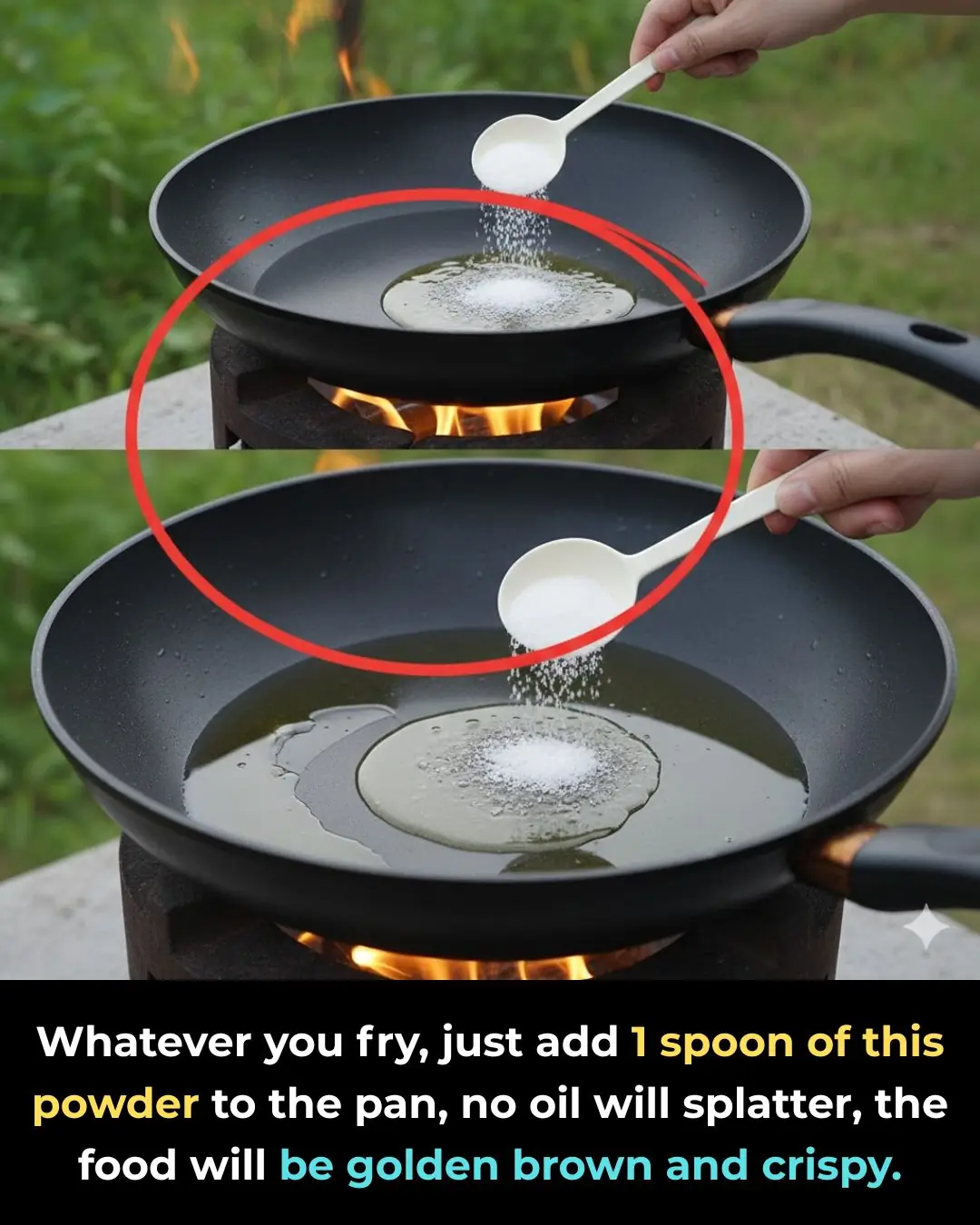
Don’t Rush to Refrigerate Lemons: This Method Keeps Them Fresh and Juicy for a Whole Year
Lemons are one of the most common ingredients in every kitchen. They can be used for salad dressings, marinades, sauces, or refreshing drinks. Most people store lemons in the refrigerator for convenience, but over time, lemons can still shrivel, lose flavor, or even go bad. To keep lemons fresh for longer and always have them ready for use, here are some simple and effective storage methods.
1. Storing Lemons in Sand
-
Choose fresh, juicy lemons: Make sure the lemons are firm, vibrant in color, and free from blemishes or soft spots. Wash them thoroughly and let them dry completely.
-
Prepare a jar or container: Use clean, dry sand free from dirt, pebbles, or debris. Slightly moisten the sand with water to help preserve the lemons.
-
Layering lemons in sand: Spread a layer of sand at the bottom of the container, place a layer of lemons on top, then cover with another layer of sand. Repeat this process until all the lemons are packed. The top layer should be sand covering the lemons completely.
-
Storage location: Keep the jar or container in a cool, well-ventilated place away from direct sunlight.
Using this method, lemons can stay fresh for up to 2 months, while retaining their juiciness and natural aroma. This traditional method was also used for other citrus fruits like oranges, tangerines, and pomelos. Each time you need a lemon, simply take one out, rinse it, and it’s ready to use.
2. Freezing Lemons
-
Select lemons carefully: Choose medium to large lemons with thin skin, heavy for their size, and without bruises.
-
Clean and sanitize: Wash the lemons thoroughly, then soak them briefly in salted water to remove any dirt or bacteria. Rinse under clean water and drain completely.
-
Prepare for freezing:
-
For large lemons: Cut in half, leaving the peel on.
-
For small lemons with tough skin: Peel off a thin layer of the outer skin before cutting.
-
For Meyer lemons or other soft-skinned varieties: Peeling is usually unnecessary.
-
-
Juicing lemons:
-
Use a juicer or squeeze by hand.
-
Wrap a small piece of tissue over the lemon peel while squeezing to absorb essential oils, which prevents bitterness in the juice. Replace the tissue when it becomes wet.
-
-
Freezing method:
-
Pour the freshly squeezed lemon juice into ice cube trays.
-
Once frozen, remove the lemon cubes and store them in a sealed container in the freezer.
-
With this method, you’ll have lemon juice available year-round. Each time you need it, simply take 1–2 cubes and let them thaw for a few minutes. The juice retains its fresh aroma and flavor.
-
Optional method: You can also peel the lemons completely, remove seeds, and use a slow juicer to extract the juice before freezing. This method is especially useful if you plan to use the juice frequently for drinks or cooking.
Extra Tips
-
Preserve flavor and aroma: Avoid prolonged exposure of lemons to air and sunlight, as this can cause bitterness and spoilage.
-
Label containers: Write the date of storage on jars or freezer containers to keep track of freshness.
-
Versatility: Frozen lemon juice can be used in cooking, baking, beverages, and salad dressings without any loss of flavor.
By applying these methods, you can ensure that lemons stay fresh, juicy, and flavorful all year long, saving both time and money while always having a natural citrus boost ready for your dishes.
News in the same category


No Need for Air Fresheners: Keep This in Your Bathroom to Eliminate Odors and Save Hundreds Every Year

Why You Should Keep a Small Bottle of Medicinal Oil in Your Bathroom: Special Benefits Everyone Should Know

4 Simple Ways to Remove the Bitter Taste from Bitter Melon: Stir-Fry for a Delicious and Nutritious Dish

One Person Washes the Dishes, the Whole Family Gets Sick? 4 Dishwashing Mistakes Everyone Should Stop Immediately

A 30-Year-Old Man Suddenly Developed Kidney Failure: 5 Daily Habits Destroying Your Kidneys Without You Realizing

Women Who Age Faster and Live Shorter Often Do These 4 Things at Night — How Many Apply to You?

Doctors Warn: 3 Common Beauty Habits That Many Don’t Realize May Increase Cancer Risks

The dirty fan needs to be disassembled, do this for just a few minutes to clean it, clean the dirty fan. over

4 Signs It’s Time to Replace Your Water Filter Cartridge Immediately

5 Foods You Should Never Combine with Pumpkin

Burn a few garlic bulbs and keep them in the middle of the house. It has great benefits that every family wants to do

If You See a Hole in a Pen Cap, This Is What It Means

🍃 5 Reasons To Add Vinegar to Your Laundry – Safe, Natural & Effective

So clever

Clothes worn for a long time turn yellow, use this method to make them white again like new

How to remove fishy smell in the refrigerator with simple ingredients

It only takes 5 minutes to plant green onions in the core of toilet paper, saving you money all year round.

Whatever you fry, just add 1 spoon of this powder to the pan, no oil will splatter, the food will be golden brown and crispy.
News Post

7 Best Ways To Use Cloves For Skin Care

The Second Life of Lions — Finding Freedom After Rescue.

When Wild Hearts Trust Us — The Unspoken Bond Between Humans, Lions, and Tigers.

The Lion Who Loved Back: Jupiter’s Final Goodbye.

The Right Way to Boil Chicken: This Method Keeps the Meat Firm, Juicy, and Delicious

No Need for Air Fresheners: Keep This in Your Bathroom to Eliminate Odors and Save Hundreds Every Year

Why You Should Keep a Small Bottle of Medicinal Oil in Your Bathroom: Special Benefits Everyone Should Know

Six Prisoners, One Fallen Officer, and a Choice That Revealed Their True Hearts.

4 Simple Ways to Remove the Bitter Taste from Bitter Melon: Stir-Fry for a Delicious and Nutritious Dish

One Person Washes the Dishes, the Whole Family Gets Sick? 4 Dishwashing Mistakes Everyone Should Stop Immediately

A 30-Year-Old Man Suddenly Developed Kidney Failure: 5 Daily Habits Destroying Your Kidneys Without You Realizing

“The Cry That Saved Us”: The Night Two Fort Worth Officers Refused to Give Up.

Women Who Age Faster and Live Shorter Often Do These 4 Things at Night — How Many Apply to You?

A Prom Night 76 Years in the Making.

My Husband Left Me and the Kids at Home on Christmas Eve to Celebrate at His Office Party So We Decided to Pay Him a Visit

A 42-Year-Old Man Died of a Stroke Despite Not Smoking or Drinking — Doctors Shocked to Find the Real Daily “Killer” in His Diet

Doctors Warn: 3 Common Beauty Habits That Many Don’t Realize May Increase Cancer Risks

How to Remove Water Stains from Wood with Mayonnaise
